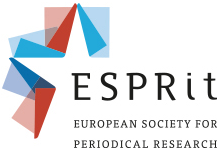Call for Papers: Special forum on Interdisciplinary Methodologies for Reading and Using the Modern Magazine (Modernism/modernity)
As an assemblage of heterogeneous materials, the magazine has proven to be a useful and engaging resource for scholars of modernism and modernity across the disciplines: from the study of advertising and marketing, literature, gender, history, and celebrity to the visual arts, political and aesthetic movements, print culture, media, and more. Moreover, just as readers move through and use these texts in a variety of ways, so too do scholars: the magazine’s internal diversity demands an interdisciplinary range of approaches. While this richness and diversity affords a multitude of scholarly interventions, the correlative conundrum is, as Patrick Collier (2016) has noted, scholars of modern periodicals cannot come to an agreement about what our object of study is: "we need greater self-consciousness and a concertedeffort to come to consensus or, better, to a clear articulation of our differences."
In this digital essay cluster, we wish to highlight the productive interdisciplinarity of modern periodicals and, in particular, the scope of methodologies that inform scholarly work on magazines across the disciplines.
To that end, we are assembling a cluster of highly inquisitive and process-conscious essays of 4,000-6,000 words that begin to engage the question:
How does my discipline shape how I read, use, and navigate a magazine?
To best display the richness and productivity of interdisciplinary approaches, we are asking this question of a particular periodical: The Western Home Monthly (1899-1932). Recently digitized by the Peel Prairie Provinces project, a digital initiative of the University of Alberta Libraries, this periodical will be, for most if not all scholars involved in thisproject, an unknown and unfamiliar object (learn more at http://modmag.ca/whm/). With this “blank slate” we can move in a self-conscious and self-reflexive way through the recently digitized archives and reflect on how our discipline frames our approach to research and produces our object of study.
We welcome a broad range of approaches and specialities including:
- Marketing and advertising
- Literary studies
- Political Science
- Cultural Studies
- Gender Studies
- History
- Media studies
- Digital humanities
This inquisitive round table will be published on the Print Plus platform of Modernism/modernity. As such, dynamic, visual and multi-media materials are warmly encouraged.
